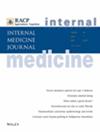Multifactorial analysis of clinical prognosis in patients with anti-N-methyl-D-aspartate receptor encephalitis: a single-centre cohort study
Abstract
Background
This retrospective cohort study investigated the clinical characteristics, treatment regimens and prognostic factors of anti-N-methyl-D-aspartate receptor (NMDAR) encephalitis in a single-centre setting between January 2019 and December 2024.
Aims
The study aimed to identify independent factors affecting prognosis and to provide guidance for clinical practice.
Methods
The study included 72 patients diagnosed with anti-NMDAR encephalitis. Clinical data – including demographic information, clinical manifestations, laboratory findings and treatment outcomes – were systematically collected. Patients were categorised into good prognosis (mRS ≤ 2) and poor prognosis (mRS ≥ 3) groups based on their 6-month follow-up modified Rankin Scale scores. Statistical analyses comprised univariate analysis and multivariate logistic regression to identify prognostic factors.
Results
Of the 72 patients, 67 (93.1%) had a good prognosis, and five (6.9%) had a poor prognosis. The mean age was 32.72 years, with an equal gender distribution. Significant differences between outcome groups were observed in tumour presence (P < 0.001), blood tumour necrosis factor (TNF) levels (P = 0.0303), cerebrospinal fluid (CSF), interleukin (IL)-8 levels (P = 0.0013) and serum immunoglobulin (Ig) G levels (P = 0.00047). Psychiatric abnormalities were reported in 76.4% of patients and cognitive impairment in 87.5%. Only 29.2% of patients received immunotherapy. The multivariate analysis revealed no significant independent predictors among gender, age, psychiatric abnormality and cognitive impairment, possibly due to the limited sample size in the poor prognosis group.
Conclusions
The study identified tumour coexistence, elevated inflammatory markers (serum TNF, CSF IL-8) and increased serum IgG levels as substantial factors associated with poor prognosis in anti-NMDAR encephalitis. These findings underscore the importance of early tumour screening and inflammatory marker monitoring in clinical management. However, larger multicentre studies are required to validate these results and provide more comprehensive guidance for clinical practice.


 求助内容:
求助内容: 应助结果提醒方式:
应助结果提醒方式:


